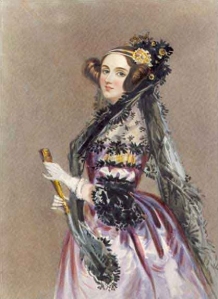October 16th 2012 was Ada Lovelace day and it prompted a small flurry of articles, posts and podcasts bemoaning the lack of women in tech and wondering what could or should be done about it.

I didn’t join in at the time – perhaps because I was rather busy launching GOV.UK that night – I and many fabulous and talented colleagues, male and female. We reached over a million people on the first day and made it simpler, clearer and faster for them to interact with the UK government.
I could perhaps claim that being the proud if exhausted Product Manager of that product, on that day, was a more fitting tribute to Ms Lovelace than any tweet or comment or turn at a women’s networking event.
But that would be to suggest that, in the midst of all the hard work and euphoria, I was thinking about Ada, or even conscious of being “a woman in technology”. And if I’m honest, I wasn’t.
What I was conscious of was everything that can be achieved when passionate, creative, experienced, proactive people come together and listen to and respect each others’ views and skills – regardless of their gender.
So it is only this evening that I’ve finally found and read those articles, and looked for those networks, and that’s because I went to listen to Martha Lane Fox speaking at a Nesta event and the subject came up. Again. In fact, I even tweeted Martha’s comment that women in tech should “Stand up, lean in & shout!” and in doing so I realised I’d sort of joined in, and perhaps it was time to form an opinion.
So here is my opening salvo.
What strikes me is that the discussion too often seems to centre around the relationship between girls and computers and how they need to be encouraged to “do IT “at school, or to write code – as if this alone will redress the gender imbalance at the top of tech companies and in the tech community as a whole. (The Indy took a broader view, but only just).
But surely computers and code are now a means to an end, many ends in fact – digital technology is about connecting people, and understanding their needs, and communicating, and being creative, and solving problems, and collaborating, and creating products that people want to use.
And, unless I’m missing something, I think girls tend to be quite good at those things – in fact possibly better than boys at some of them (I have no data – I’m just jumping on the gender stereotype bandwagon! But I also speak as a woman with a degree in English Literature who’s never written code, but who’s been able to work on some pretty big digital projects).
The computers and the code are the tools that make all of this possible, and yes, we absolutely do need talented people who know how to wield them skilfully – be they male or female. But TV is about more than cameras, newspapers are about more then typesetting, and creating great digital products and experiences is about more than computers.
So maybe, in 2013, we could talk less about IT and more about digital products, less about coding and more about understanding the needs of real people, less about “geeks” and more about creativity. And perhaps if we did that we might do better at attracting the full spectrum of people who will show us where digital technology can really take us… regardless of their gender.